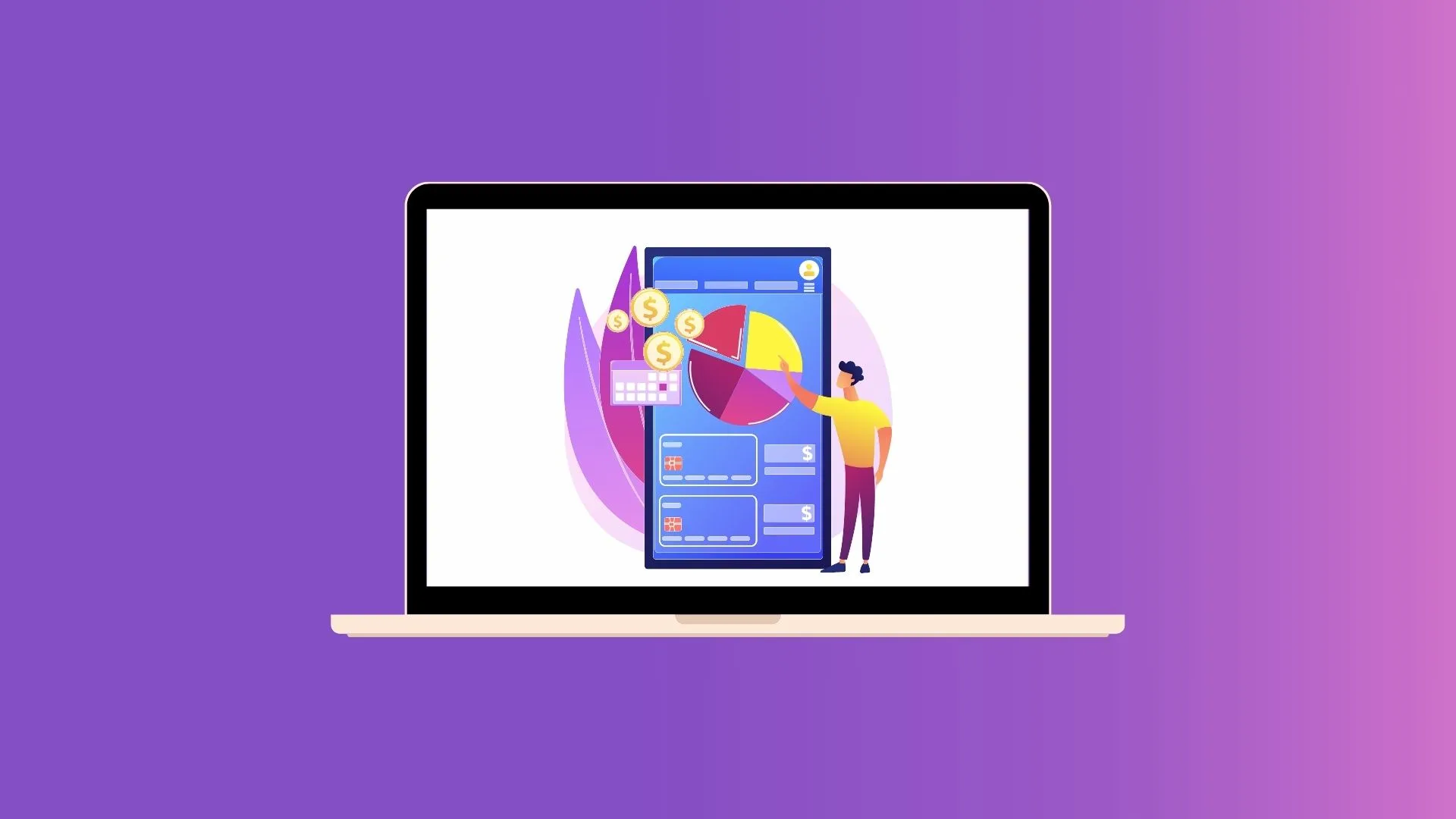What is iGaming: The Ultimate Guide to Online Gaming & Betting in 2025

What is iGaming?
Essentially, iGaming is the opposite of traditional gaming. iGaming covers a wide range of online gambling activities. This list includes online casinos, online sports betting, and online poker.
So, what distinguishes iGaming from traditional gaming? The answer lies in wagering real money. Traditional gaming doesn’t require placing real money wagers, which iGaming does.
Take a look at this easy analogy:
- Traditional gaming: Playing a 1-on-1 basketball game with a teammate for bragging rights
- iGaming: Playing a 1-on-1 basketball game with a teammate for a $20 bet
In summary, you should have a better understanding of what is iGaming. It involves gambling to collect a financial incentive. This element has made iGaming one of the best sporting events in the world.
The evolution of iGaming over the years
While iGaming is now central to casino marketing strategies, this wasn’t always the case. The journey of iGaming acceptance and growth is fascinating. The movement started in the 1990s. In 1994, Microgaming was recognized as the developer of the first online casino software. Since then, online gambling platforms have taken center stage.
Here’s a quick timeline of how iGaming evolved over the years:
- 1994: Microgaming initiates the first true online casino.
- 1996: The Kahnawake Gaming Commission establishes an online gambling regulatory body in Canada. In addition, brick-and-mortar sportsbook Intertops diversifies into online sportsbooks.
- 1998: Planet Poker develops an online poker platform.
- 2001: PartyGaming launches PartyPoker. This contributed even more to the rising online poker market.
- 2003: 888.com acquired a license to become the first online casino in the United States.
- Late 2000s: Online casinos drastically improve their User Interface (UI). The online gambling market leverages technological advancements and the Internet boom. Online gambling regulations also take form, particularly in the UK and Malta.
- Early to Middle 2010s: Mobile app stores pave the way for mobile gaming. Live dealer games also become available through video streaming.
- Late 2010s to present: The COVID-19 pandemic forces more players into online betting. Major sports leagues like the NBA strike partnerships with online sports betting brands.
One thing is for sure: technology beckons. Advancements in Virtual Reality (VR) and Augmented Reality (AR) are coming. These future trends could shape experiences in the iGaming industry.

Reviewing Different Forms of iGaming
iGaming offers sporting experiences in different forms, including online betting and casinos.
Online casinos
Online casinos represent the digital counterpart of land-based casinos. That’s not to say that they are hurting brick-and-mortar casinos.
It’s the other way around. Even popular land-based casinos like Caesars Palace Casino offer online games. The availability of online casino brands today is truly unprecedented.
Online casinos have a wide variety of games to choose from. Here are several examples:
- Slots: These games are typically categorized into classic, video, and progressive slots.
- Blackjack: A traditional casino game where you try to get to 21 without going over.
- Roulette: This game involves predicting where the ball lands on the numbered wheel.
- Baccarat: Players bet on which between the player’s or banker’s hand is closer to 9.
Online casino brands always offer bonuses and promotions, such as initial deposit bonuses, free slot spins, and loyalty programs.

Sports betting
We’re seeing a significant rise in sports betting opportunities recently. Major sports leagues all over the world embrace the sports betting craze. Just take the National Football League (NFL) as an example. The NFL partnered with sportsbooks that are popular, including DraftKings and FanDuel.
Accessibility is key, with sports betting now available on mobile devices and online platforms. Players can wager on different bets, including the following:
- Moneyline: Predicting which team will win the game.
- Point spread: Predicting how many points the favorites will win by.
- Over/under: Predicting if the total score is over or under a certain number.
- Parlays: Combining different bets into one wager. Every parlay bet must win for the player to win the wager.
Online sports betting will only grow from this point on. It’s not just about traditional sports like football or basketball. Sports betting now covers niche sports like golf, tennis, rugby, and eSports.

eSports betting
The sports betting trend is now branching out to the eSports scene. eSports betting burst into the scene when the pandemic halted traditional sports. Investors are even paying more attention to eSports activities today.
That’s mostly due to the growing popularity of professional video game competitions. Online betting on eSports matches includes the following wagering options:
- Match winner: Predicting which team will win the match.
- Handicap betting: Predicting margins of victory for favorites. This could also involve giving certain advantages to underdogs.
- First blood: Predicting which team or player will get the first kill.
- Total rounds or kills: Predicting the over or under on the total rounds or kills.
More prized tournaments for games like League of Legends and Dota 2 will attract more online gambling bettors and investors.

Poker, bingo, and lotteries online
Relying on a chance to win a game is a thrilling experience. That’s exactly what online lotteries, bingos, and pokers bring.
These games are very popular in the online casino gaming scene. Here’s a quick overview if you’re not familiar with these titles:
- Online poker: Game variants include Texas Hold’em, Omaha, and Draw games. Some poker games allow players to wager any amount of money.
- Online bingo: Players can choose from different online bingo variants. These include 30-ball, 75-ball, and 90-ball bingos. Some platforms also offer unique variations like Pattern or Progressive Bingos.
- Online lottery: Lottery variants depend on frequency and winning numbers. An online lottery can be conducted in traditional or 5/35 format.
These chance games are viewed as the purest form of entertainment in online iGaming.

Live dealer games
Live dealer games offer the best of both worlds. Players experience the excitement of land-based casinos even at home.
These games use video streaming platforms. The highlight is the interaction with real human dealers, which is different from usual online casino games that only use Random Number Generators (RNGs).
The games also come in traditional forms like blackjack, roulette, and baccarat. There’s also the occasional game show format. Live dealer game shows add unique twists to popular game shows.
However, the live dealer format has unique considerations. Take a look:
- Limited table availability: Limited slots, particularly during peak periods, might be limited. This could be caused by high demand and server limitations.
- Higher minimum bets: A live dealer game usually requires higher minimum bets to cover associated costs and dealer salaries.
- Technical issues: Server issues and connection problems could affect the games.
Social interaction is at the heart of live dealer formats. Choose this online gambling type for a more festive atmosphere.

Licensing in the iGaming Industry
Securing an iGaming license is not an easy proposition. First off, the costs could be significant if you’re only bootstrapping the business. Then there’s the fact that requirements vary from one area to another. In the US alone, there are varying online gambling regulations per state.
The revenue potential in the gambling industry is there. Forget that for a minute, though. You have to obtain your licenses first.
Reviewing the licensing process
Licensing is an integral step when starting your online casino. Here’s a step-by-step overview of how you can obtain iGaming licenses:
- Jurisdiction selection: Choose a jurisdiction that covers your target market. Research about the costs, tax implications, and market saturation under that jurisdiction.
- License type identification: Large-scale online gambling services might require a master license. Sub-licenses or specific game licenses could be enough for smaller operations.
- Document preparation: Secure a list of required documents from your chosen jurisdiction. This list could include financial statements, business plans, and ownership information. Prepare your anti-money laundering policies, too.
- Application submission: Complete all application forms and gather your documents. Then, submit your application package along with the required fees.
The licensing process doesn’t end once you secure a license. Ongoing compliance is crucial to avoid issues during licensing audits.

Key jurisdictions and their requirements
Each iGaming licensing jurisdiction enforces a unique system. As an example, let’s analyze three major iGaming licensing authorities:
- Malta Gaming Authority (MGA): Your company must be in Malta. The MGA also requires tight Anti-Money Laundering (AML) and Know Your Customer (KYC) procedures.
- United Kingdom Gambling Commission (UKGC): Your gambling business must be in Great Britain. The UKGC requires independent testing of RNGs and technical structures.
- Gibraltar Gambling Commission (GGC): Your company must be in Gibraltar’s territory. The GGC looks into your financial stability and realistic business projections.
These are just snippets of key jurisdictions and their requirements. Moreover, new licensing requirements might emerge in the future. Always consult with your legal team to stay on top of these requirements.
Online Gambling Regulations and Their Impact on Players
Online gambling regulations address player protection and safety. How do these regulations impact the players and the whole iGaming industry?
Overview of global iGaming regulations
Online wagering has become very accessible for players. It’s not just the games that are convenient today – even making online payments is.
With that, an important question arises. How does the iGaming industry protect its players? The market wants to minimize fraud risks, unfair gameplay, and money laundering.
Regulatory frameworks are built to address these concerns. These frameworks differ in jurisdictions, but here are common influencing factors:
- Player protection: Regulations prioritize fair practices to protect players. Players are protected from unfair gameplay and false advertising.
- Cultural approach: Each jurisdiction differs in tolerance level for online gambling. Stricter countries enforce more limitations or bans.
- Tax revenue potential: The online gaming market is a government tax revenue source. Regulations dictate the controlled taxation of online gaming operators.
- Crime prevention: These frameworks help avoid financial crimes. It’s a long list that includes money laundering and fraud.
Regulations also prioritize responsible gambling practices. These help minimize the risks of addictive gambling behaviors.

Compliance challenges for iGaming businesses
An iGaming business regularly deals with compliance challenges. For instance, entering a new market requires a separate license. That’s another set of document submission and licensing fees.
iGaming businesses always face compliance hurdles, such as the ones below:
- Multiple jurisdictions: Separate jurisdictions mean separate licenses in the iGaming industry. For example, a global sports betting brand usually maintains multiple licenses.
- Monitoring systems and procedures: The online gambling industry requires KYC and AML procedures. Licensing authorities require strict transaction monitoring and customer verifications.
- Responsible gambling: Gambling laws encourage deposit limits and age verifications. These are measures to minimize addiction behaviors.
Recently, the iGaming industry has been trending towards cryptocurrencies and blockchain, which poses another challenge for online wagering brands.

Player protection measures
Player protection is always a top priority among iGaming companies. They don’t have much of a choice, anyway. Licensing authorities require responsible gambling initiatives in the iGaming market.
Many players and aspiring commercial casinos are still unfamiliar with these measures. For your reference, here are the common player protection measures:
- Age verification: Players must be of legal gambling age to access IGaming events. The iGaming industry uses ID checks and document verifications for this matter.
- Responsible gambling: Even online sports betting platforms are wary of gambling addiction. Licensed operators enforce deposit limits, loss limits, and self-exclusion programs.
- Data security: Personal details are always encrypted to prevent breaches. Online wagering platforms regularly conduct security audits.
- AML practices: The iGaming industry is strict about money laundering. Player identities and fund sources are constantly monitored.
This multi-layered security approach is required in the global iGaming market.
Key Players in the iGaming Industry
It’s not just the betting companies that benefit from the iGaming sector. This industry influences other niches and vice versa.
Take software providers and game developers, for example. They earn a lot of money just by providing casino game technology. Software providers like NetEnt and Microgaming offer games on many iGaming platforms.
Here are the key players that influence legalized iGaming:
- iGaming platform providers: These companies develop technological infrastructure for online casinos. Platform providers like SoftSwiss and EveryMatrix provide mobile technology advancement.
- Game developers: These companies develop games for iGaming companies. Organizations like Playtech develop mobile sports betting games.
- Sports betting operators: Online sports betting is absolutely popular today. People rely on sports betting platforms like FanDuel and DraftKings.
- Payment processors: Legal betting options prioritize safe payment processors. Popular e-wallet options include Skrill and Paysafe.

Strategies and Tips for Running a Successful iGaming Business
For aspiring iGaming entrepreneurs, entering the market requires a strategic approach.
Knowing market trends and consumer behavior in iGaming
Consumer preferences are evolving with the rising prominence of iGaming. Just take a look at these iGaming trends in 2025:
- Variety of payment options: Players aren’t only using traditional credit cards. Gambling sites are diversifying into e-wallets and cryptocurrencies.
- Priority on responsible gambling: Easily accessible gambling platforms can lead to addictive behaviors. Regulatory bodies are now enforcing deposit limits and reality checks.
- Rise of fantasy sports: Previously, fantasy sports were categorized as other skill-based games. Now, fantasy sports platforms are simplifying rules for casual players.

Using technological innovations that drive the iGaming industry
Technology continues to shape up every industry, including iGaming. These are the groundbreaking technologies affecting the iGaming market in 2025:
- Immersive experience: Casinos are tapping into virtual reality and augmented reality. This realistic digital experience can attract more players.
- Behavior analysis: iGaming businesses are using AI to analyze player behavior. This contributes to personalization and fraud prevention.
- Mobile gaming: Mobile sports betting is a big technological advancement. Sportsbooks operate on mobile platforms today.

Using the best iGaming marketing strategies for success
The digital realm is a gold mine for iGaming marketing.
This isn’t just for acquiring new players. An effective marketing strategy helps retain players, too. Take a look:
- Targeted marketing: Analyze player demographics and behavior for personalized promotions. Use analytics tools like Adobe Analytics or Looker.
- Influencer marketing: Partner with influencers in the iGaming niche. Work with Twitch streamers during promos and live streams.
- Search Engine Optimization (SEO): SEO increases your brand visibility on search engines. Building gambling backlinks is a good way to boost search rankings.
- Loyalty programs: Reward programs increase customer retention. Integrate gamification elements like badges, points, and leaderboards.

Choosing the right iGaming marketing agency
The iGaming market size is constantly evolving. Other countries have already made iGaming legal in their territories. Moreover, different forms of gambling events shape the industry.
Promoting an iGaming brand is challenging in today’s crowded market. That’s why several companies work with an iGaming marketing agency instead. These marketing experts already have inside expertise within the industry.
For instance, iGaming marketing agencies like Fortis Media can maximize your resources. They do content optimization, link-building, and technical audits. Plus, they have connections within the industry.
Working with the right iGaming marketing agency is a cost-effective strategy. Just make sure to do background checks and consultations.
Key Takeaways
The market has vastly grown since launching the first online iGaming website in the 90s.
Regulations and technology will dominate the future of iGaming. It’s not just the outcome of a game anymore; players also look for exciting ways to experience the games.
Elevate your audience reach to stay ahead of competitors. Partner with professional iGaming marketers like Fortis Media to boost your brand. Investments like this could positively change your fortunes.
FAQS ABOUT IGAMING AND SPORTS BETTING
What are the age restrictions for playing online casino games?
Most countries require players to be at least 21 to access online casinos. Regulatory bodies require casino companies to have age verification procedures. If you’re not of age to legally gamble, iGaming sites can close your account and confiscate your winnings.
How do iGaming platforms ensure the security of player data?
iGaming platforms protect player information through data encryption, network firewalls, and regular security audits. Regulatory bodies also require iGaming sites to have a Secure Sockets Layer (SSL) technology, along with Intrusion Detection Systems (IDS). These security layers protect players from data breaches and phishing attempts.
Can players self-exclude from iGaming sites?
Yes, iGaming platforms typically allow players to self-exclude from their sites. Self-exclusion programs are an integral part of responsible gambling practices. This allows players to restrict their access to an iGaming website for a specific period.
Are winnings from iGaming taxable?
Generally, iGaming winnings are treated as income, which makes them taxable. This includes winnings from various forms of online gambling, such as sports betting, poker, casinos, and lotteries. Tax rates usually depend on your specific location and income tax bracket.
What dispute resolution mechanisms are available for iGaming?
Internal Dispute Resolution (IDR), Alternative Dispute Resolution (ADR), and Online Dispute Resolution (ODR) are generally available for iGaming players seeking dispute resolutions. In addition, regulatory bodies typically oversee committees for dispute resolution. These initiatives are designed to ensure fair gameplay on iGaming platforms.
Read our other articles

Google March 2025 Core Update: iGaming Industry Impact with Real Cases


Benefits of Enterprise SEO: Why Large-Scale Businesses Need It


B2B SaaS SEO: Best Practices and Strategy for 2025






